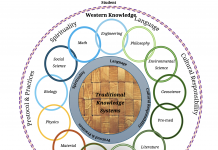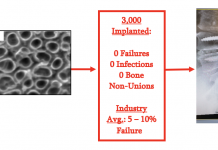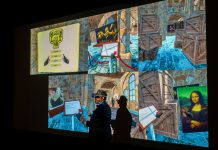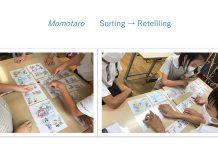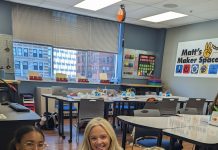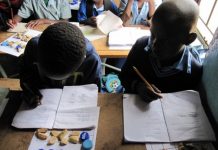Open Access Government produces compelling and informative news, publications, eBooks, and academic research articles for the public and private sector looking at health, diseases & conditions, workplace, research & innovation, digital transformation, government policy, environment, agriculture, energy, transport and more.
Home 2024
Archives
Promoting risky play: Insights from the Outside Play Lab
Mariana Brussoni, founder of the Outside Play Lab at The University of British Columbia, is a pioneer in promoting the benefits of risky play for children. Her research emphasizes the importance of allowing children to engage in outdoor activities that involve a certain level of risk, arguing that this type of play is crucial for their overall development.
Storying the world: Decolonizing classrooms
Geraldine Balzer, Associate Professor from the College of Education at the University of Saskatchewan, discusses the importance of decolonizing classrooms by telling stories about the world.
STEM programs: Encouraging an early start with engineering design
Nancy Butler Songer, Associate Provost of STEM Education at the University of Utah, highlights the importance of introducing STEM programs to younger students.
A transdisciplinary approach to literacy research, practice, and policy
Patriann Smith, Associate Professor at the University of South Florida’s Department of Teaching and Learning, discusses transdisciplinarity and how it could inform approaches to literacy research, practice, and policy.
Independent research experiences in sustainable chemistry
The Research Experiences for Undergraduates (REU) programme in the Department of Chemistry at Michigan State University was created to inform students majoring in chemistry, biochemistry and chemical engineering about key societal sustainability challenges and to provide graduate-level independent research experiences that address aspects of these challenges.
Indigenous students face disparities in STEM
Dr. Judith Brown Clarke and Dr. Wendy K’ah Skaahluwaa Todd, shed light on the crucial role of cultural identity in native American-Alaskan students’ persistence and success in STEM fields and the Geosciences.
UK childcare policy: Navigating choices, challenges and the need for reform
In this article, Prof. Dr. Ingela Naumann, University of Fribourg, explores UK childcare policy through the Nordic perspective on parental work, and the struggle to balance choices for families in the face of societal and economic constraints.
Enhancing Japanese elementary and junior high-school foreign language education
Our ongoing research, fuelled by last year’s research grant, delves into the theme of “Evaluation of Foreign Language Education Fostering Children’s Thinking, Judgment, Expressiveness and Autonomous Attitude in the Digital Age”.
Opinion: Do universities help or hurt innovation?
Do Universities help or hurt innovation? Find out in this 25-year academic entrepreneur’s anecdotal perspective of starting companies and developing implants. Thomas J. Webster shares his opinion here.
Sensory roles in reading skills: The print-to-speech model
While it is easy to recognise the necessary role that vision plays in reading, it is important to know that many other senses contribute to the acquisition, refinement and maintenance of reading skills including sound, touch and motor coordination, to name just a few.
Responsible and ethical conduct of research: Principles to uphold
Greg M. Swain, Professor of Chemistry at Michigan State University, emphasizes the importance of responsible and ethical conduct of research (RECR) in scientific progress.
Bridging realities: Dr. James Hutson on XR, GenAI, and gamification
The work of James Hutson, Lead XR Disruptor, Department Head at Lindenwood University, concerning bridging realities is placed under the spotlight
Accessing childcare: Parents’ logistical challenges and gender equality
Prof Ingela Naumann from the University of Fribourg, explains why reducing parents' logistical challenges in coordinating work and childcare matters for gender equality.
School-to-work transitions for egypt’s youth
Ragui Assaad from Humphrey School of Public Affairs, at the University of Minnesota, argues that structural reforms result in increasingly difficult and unequal school-to-work transitions for Egypt’s youth.
Teaching and assessing literacy using a balanced approach: Effects of can-do self-assessment on early...
Following the January and July 2023 issues, Emiko Izumi from the School of Education & Graduate School of Education at Kwansei Gakuin University discusses the content and results of her collaborative research on the teaching and assessment of reading and writing for early English as foreign language (EFL) learners in Japan.
Transforming integrative maker education for STEM: Empowering pre-service teachers
Dr Ginny Chambers and Dr Kamryn York from Point Park University tell us about a project aimed at enhancing integrative maker education through the training of pre-service teachers, focusing on elementary education.
Fostering fundamental computational skills, a global challenge
Koji Watanabe, Professor from Miyazaki International University in Japan, argues that fostering fundamental computational skills is a global challenge.
The research experiences for undergraduates (REU) program
Greg M. Swain, hailing from the Department of Chemistry at Michigan State University, examines cross-disciplinary training in sustainable chemistry and chemical processes, including the critical role of mentoring and finding research experiences for undergraduates.
Humanities and the arts: Pioneering SHAPE in Schools, a human world focus
Julia Black, Claire Gorrara, Lucy Jenkins, and Tallulah Holley (1), take a detailed look at the vital role of pioneering SHAPE in schools, that is, subjects that share a human world focus like humanities and the arts.
Understanding empathetic design principles in engineering courses
Marcia Friesen, Dean at the Price Faculty of Engineering, the University of Manitoba, Canada, explores what empathic design principles in engineering courses can look like with advanced social justice.






